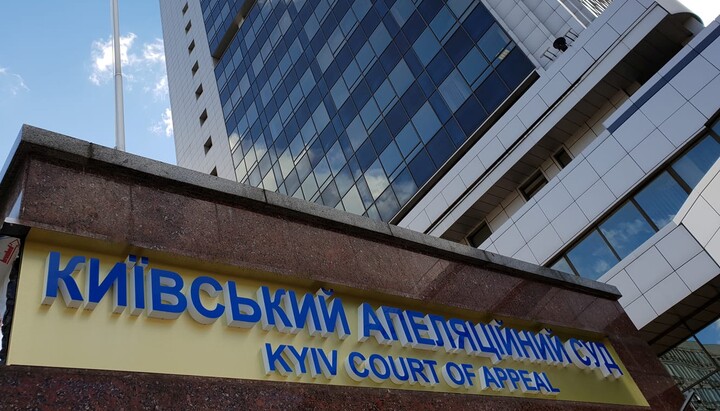Court of Appeal declares the legality of renaming UOC into ROCinU

In their decision, the judges relied on the Charter of the Russian Orthodox Church, as well as the expired Charter of the UOC, which was in force until May 27, 2022.
On November 2, 2023, the Sixth Appellate Administrative Court ruled to dismiss the appeals by the UOC Metropolis and upheld the decision of the Kyiv District Administrative Court dated May 15, 2023, which declared the actions of the Ministry of Culture in forcibly renaming diocesan structures, monasteries, and communities of the UOC as the ROCinU to be legal. The decision was published in the Unified State Register of Court Decisions.
The document states that in early 2019, the Kyiv Metropolis of the UOC applied to the Kyiv District Administrative Court with a lawsuit, seeking to annul the Ministry of Culture's Order No. 37 dated January 25, 2019, which mandated a religious studies examination to establish the list of religious organizations subject to the renaming law (the norms of the seventh and eighth parts of Article 12 of the Law of Ukraine "On Freedom of Conscience and Religious Organizations"). The UOC also demanded that the Ministry of Culture retract the publication of the list of UOC structures subject to renaming on its website on January 26, 2019, as well as the corresponding publication in the official newspaper "Uryadovyi Kuryer."
On March 28, 2019, the Kyiv District Administrative Court commenced proceedings on case No. 640/4748/19, with all the diocesan administrations and monasteries of the UOC participating as third parties. In 2023, the Kyiv District Administrative Court was abolished, and the case was taken over by the Kyiv District Administrative Court. On May 15, 2023, this court denied the UOC's administrative claim entirely.
The Kyiv Metropolis, Kyiv-Pechersk and Pochaiv Lavras, as weel as the Florovsky Convent filed appellate complaints. On September 8, 2023, the Sixth Appellate Administrative Court of Kyiv initiated the proceedings. The request for an open court hearing was denied. The final decision was communicated to the participants in written form. It states that the appellate complaints of the UOC structures were dismissed, and the Kyiv District Administrative Court's decision dated May 15, 2023, remains unchanged.
The Appellate Court justified its decision by citing that the Ministry of Culture relied on the law adopted during Poroshenko's presidency (No. 2662-VIII), which introduced amendments to Article 12 of the Law of Ukraine "On Freedom of Conscience and Religious Organizations" concerning the names of religious organizations (associations) within the structure (part) of a religious organization (association) whose governing center (management) is located outside of Ukraine in a state recognized by law as having committed military aggression against Ukraine and/or temporarily occupied part of Ukrainian territory.
The text essentially suggests that the UOC may be recognized as part of the ROC in case it exhibits one of the following signs:
The UOC's Statute contains references to being part of the ROC.
The ROC's Statute contains references to the inclusion of the UOC in its composition.
The ROC's Statute includes provisions regarding the mandatory inclusion of UOC hierarchs in the ROC's management bodies.
The court document states that "the analysis of the mentioned norms provides grounds to conclude that if certain criteria set out in part eight of Article 12 of Law No. 987-XII are met, a religious organization (association) must reflect its affiliation with a religious organization (association) beyond Ukraine, to which it belongs (of which it is a part) in its full name, as stated in its charter (statute)." In case of non-compliance, UOC priests would not be admitted to the Ukrainian Armed Forces. Additionally, UOC structures would be subject to "other restrictions provided by law."
The court reviewed the Ministry of Culture's examination of the Statutes of the UOC and the ROC and found it to be consistent with the actual circumstances. However, the examination used provisions from the UOC's Statute that were valid until May 27, 2022, which are no longer in force.
Nevertheless, the court stated that UOC structures "are part of the religious association 'UOC,' which, in turn, is part of the ROC (sign 1), is guided by the decisions of the ROC management bodies (sign 2), and UOC authorized representatives are part of the ROC management bodies (sign 3)."
The appellate court's decision mentions that it can be appealed in the Supreme Court within thirty days.
Earlier, it was reported by the UOJ that the Verkhovna Rada voted to ban the UOC.












